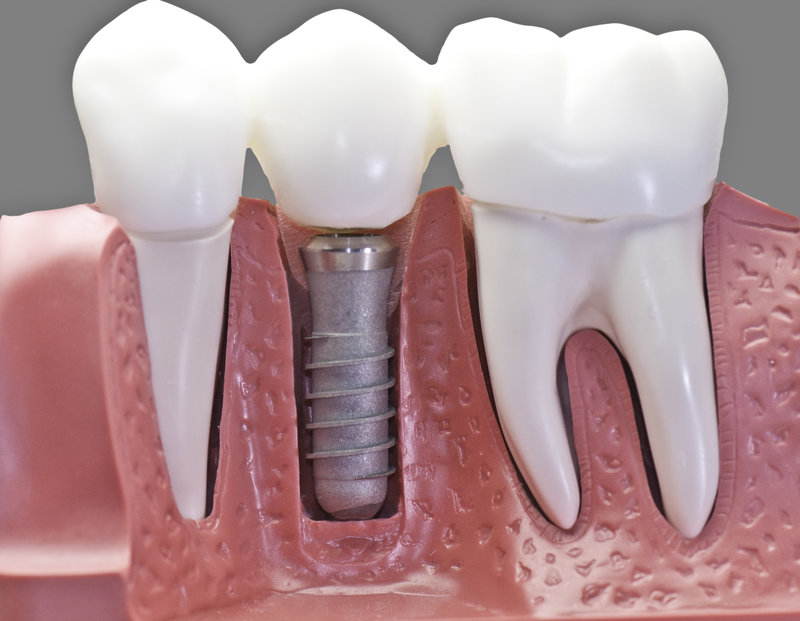
Dental implants are often described as a permanent solution for missing teeth. This sounds ideal, but what does “permanent” actually mean in the context of dental work? While implants are designed to be a long-lasting and durable option, their lifespan depends on several important factors.
This post will explore how long you can realistically expect dental implants to last. We’ll examine the different parts of an implant, the materials they’re made from, and the crucial role that proper care plays in their longevity. Understanding these aspects will help you see why implants are considered a top-tier tooth replacement option and what you can do to protect your investment for years to come.
What is a Dental Implant?
Before we discuss how long they last, it’s helpful to understand what a dental implant is. It’s not just a single piece but a system made of three distinct parts working together to replace a missing tooth:
- The Implant (Post): This is a small, screw-like post, typically made of titanium, that is surgically placed into your jawbone. It acts as a replacement for the natural tooth root. Over time, a process called osseointegration occurs, where the jawbone fuses with the implant, creating a strong and stable foundation.
- The Abutment: This is a connector piece that attaches to the top of the implant post, sitting just above the gumline. It serves as the link between the implant and the final restoration.
- The Restoration (Crown): This is the visible, tooth-shaped cap that is placed on top of the abutment. The crown is custom-made to match the color, shape, and size of your natural teeth, restoring both the function and appearance of your smile.
When people ask how long dental implants last, they are usually referring to this complete three-part system.
The Lifespan of Each Implant Component
The longevity of a dental implant system is influenced by the lifespan of its individual parts. While the implant post itself can last a lifetime, the abutment and crown are more exposed and may need replacement over time.
The Implant Post: A Lifetime Solution
The implant post is the true star of the show. Made from biocompatible titanium, it is designed to integrate fully with your jawbone. Once osseointegration is complete, the implant becomes a permanent part of your jaw.
With proper care and good oral hygiene, the implant post itself has a success rate of over 95% and can last a lifetime. It is incredibly rare for a fully integrated implant to fail or need removal. This is why dental implants are considered a permanent fixture in modern dentistry.
The Abutment and Crown: Built to Last, But Not Forever
While the implant post is securely anchored in your bone, the abutment and crown are subjected to daily wear and tear from chewing, biting, and grinding. Just like natural teeth, these components can get damaged or wear down over time.
- Crowns: A dental crown typically lasts between 10 to 15 years. However, with excellent care, high-quality materials like zirconia or porcelain can last for 20 years or more.
- Abutments: Abutments are very durable and can last as long as the implant post. However, they can sometimes be damaged or require replacement if the crown needs to be changed.
The need to replace a crown after a decade or two does not mean the implant has failed. It’s a simple maintenance procedure, much like replacing the tires on a car. The core foundation—the implant post—remains intact and ready to support a new crown.
Factors That Influence Dental Implant Longevity
The success and lifespan of your dental implants are not solely determined by the materials used. Several personal and lifestyle factors play a significant role.
Oral Hygiene
Excellent oral hygiene is the most critical factor in ensuring your implants last. While the implant and crown cannot decay like natural teeth, the surrounding gums can still become infected. A condition called peri-implantitis can develop, which is an infection similar to gum disease. If left untreated, it can lead to bone loss around the implant and cause it to loosen or fail.
To prevent this, you must:
- Brush twice a day and floss daily, paying special attention to the area around the implant.
- Use a water flosser or interdental brushes to clean hard-to-reach spots.
- Visit your dentist for regular check-ups and cleanings (at least twice a year).
Overall Health and Lifestyle
Certain health conditions and habits can affect the success of dental implants:
- Smoking: Tobacco use restricts blood flow to the gums, which can hinder the healing process after surgery and increase the risk of implant failure.
- Uncontrolled Diabetes: High blood sugar levels can impair healing and make you more susceptible to infections, including peri-implantitis.
- Osteoporosis: This condition can affect bone density, potentially compromising the stability of the implant in the jaw.
- Teeth Grinding (Bruxism): Clenching or grinding your teeth places excessive pressure on the crown, which can cause it to wear down, chip, or break prematurely. Your dentist may recommend a night guard to protect your implant and natural teeth.
Location of the Implant
The placement of the implant in your mouth also matters. Implants in the back of the mouth are used for chewing and are subjected to more force than those in the front. This increased pressure can lead to the crown wearing out faster.
The Dentist’s Skill and Experience
The success of the initial implant surgery is fundamental. Choosing a qualified and experienced dentist or oral surgeon is crucial. A skilled professional will ensure the implant is placed correctly and that you have sufficient bone density to support it, setting the stage for long-term success.
Your Guide to a Lasting Smile
Dental implants are the closest you can get to a permanent solution for missing teeth. While the crown may need to be replaced every 10 to 15 years, the implant post itself has the potential to last a lifetime with proper care.
By committing to excellent oral hygiene, attending regular dental check-ups, and managing your overall health, you can protect your investment and enjoy the benefits of a complete, confident smile for decades. If you are considering dental implants, a consultation with a dental professional can help determine if they are the right choice for you and set you on the path to a lasting restoration.
